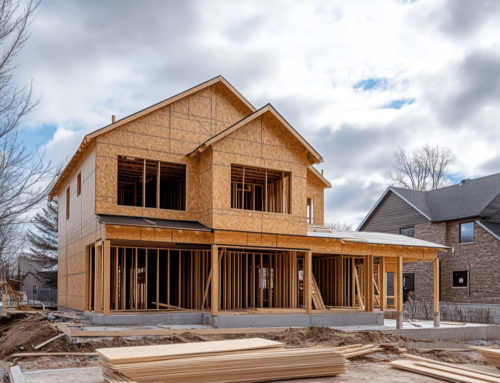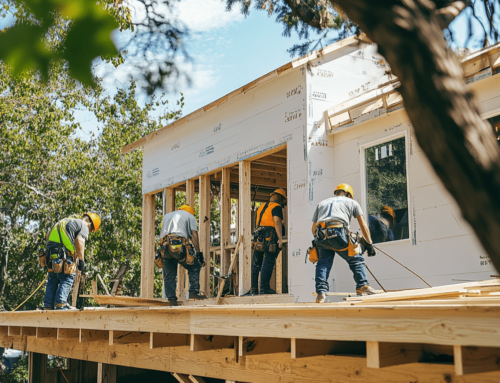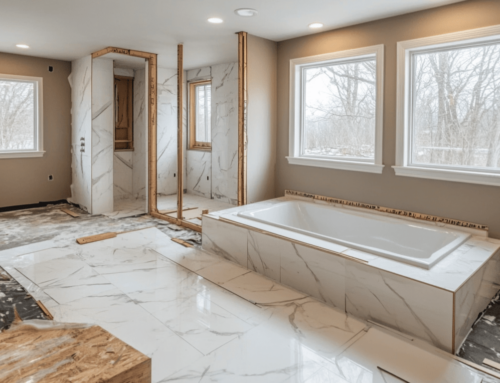There are many home improvement projects that require a permit issued by local authorities, but also plenty that don’t. Trying to figure out when you actually need permission to work on your house can be confusing, especially if you’re inexperienced with the process.
We wrote this article to give you a better idea of when a permit is required to help you stay in compliance with local regulations. Knowing when a permit isn’t necessary can also help you avoid unnecessary red tape and expense when undertaking home improvement projects. You’ll also find a brief guide on how to get a permit when you need one in North Carolina.
Home Improvement Permits in North Carolina
In North Carolina and in every other state, building permits are required for many types of home improvement and repair projects. Generally speaking, projects that make significant modifications to a home or property, modify structural elements, or involve substantial work with utility infrastructure will require you to get a permit from local authorities.
North Carolina Permitting Laws
The state of North Carolina has permitting requirements for construction, repair, and renovation projects. These permits ensure that new construction and major improvement project plans comply with North Carolina State Building Code and North Carolina Residential Code regulations.
Under the state’s permitting laws, projects that cost less than $40,000 are exempt from permitting requirements with a few exceptions. These include all projects that involve modifying load-bearing structures, plumbing infrastructure, HVAC systems, or the addition of new roofing structures. Permits are required for these exceptions.
Local Permitting Laws
In addition to state regulations, local governments also have their own permitting requirements. These mostly align with state requirements, but vary somewhat from one part of North Carolina to another.
Where To Get Local Building Permits
You can find information on your city or county government’s website to guide you on when a permit is required, as well as where and how to get one. Building permits are typically issued through the local government inspections department, but may fall under other departments in some cases.
When Do You Need a Permit for Home Improvements?
Legally speaking, you will need a permit for any project that meets state and/or local requirements for permitting. In North Carolina, violation of state permitting regulations can result in misdemeanor criminal charges. Local penalties for failing to secure a necessary permit vary by location.
Home Improvement Projects That Require a Permit in North Carolina
Home improvement jobs typically require you to secure a permit include:
- Building a deck or porch
- Making structural changes to an existing building or structure
- Installing a swimming pool
- Undertaking projects that exceed $40,000 in cost
- Making major changes or repairs plumbing, HVAC, or electrical system infrastructure
- Building an addition or accessory structure
- Disturbing large plots of land (threshold varies by location)

Home Improvement Projects That Don’t Require a Permit in North Carolina
There are also many projects that don’t require permission, including:
- Making cosmetic changes to your home
- Building a fence
- Building retaining walls, except those located in designated floodplains
- Making minor structural repairs
- Making minor repairs to electrical, plumbing, or HVAC systems that don’t require significant work on infrastructure
Do I Really Need a Permit for My Project?
You can undertake many smaller home improvement projects without needing a permit to be in compliance with state and local laws. When your project does not fall into a category in which permitting is required, you have no legal obligation to get one.
However, there are reasons other than legal status to get a permit, even when it isn’t specifically required. For one, going through the permitting process provides a checkpoint to ensure your project won’t damage your home or surrounding areas.
Another reason to get a permit even when the law doesn’t require has to do with the value of your home. Today’s savvy buyers are excellent at finding reasons to bring down the asking price for a home. Being able to identify work that has been done on a home without a permit can give a buyer leverage during the negotiation process, since they can argue that it could be a liability. Getting a permit can ensure that this isn’t an issue.
Find a Contractor Who Knows Their Permits
A good general contractor can be a powerful ally when it comes to the permitting process. With their experience working through state and local regulations, they will know exactly when you do and don’t need a permit. They can also tell you when it’s advisable to get one, even if you technically don’t need one.
At Feel Love Homes, we take that a step further. We take the legwork of applying for and securing permits on ourselves. That means you don’t have to jump through all the hoops or worry about being approved. Instead, you can just focus on everything your next project will add to your home and your life.





